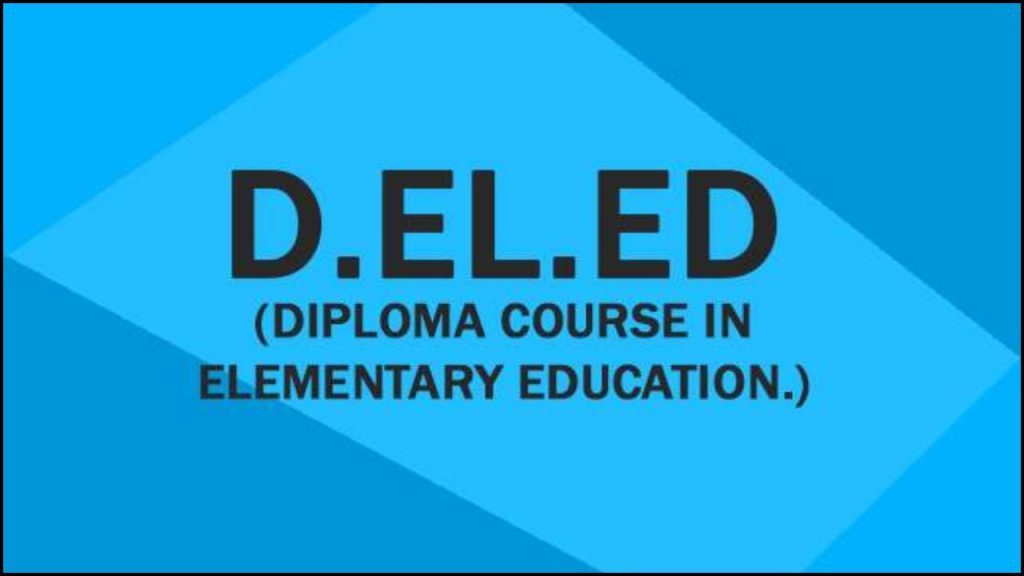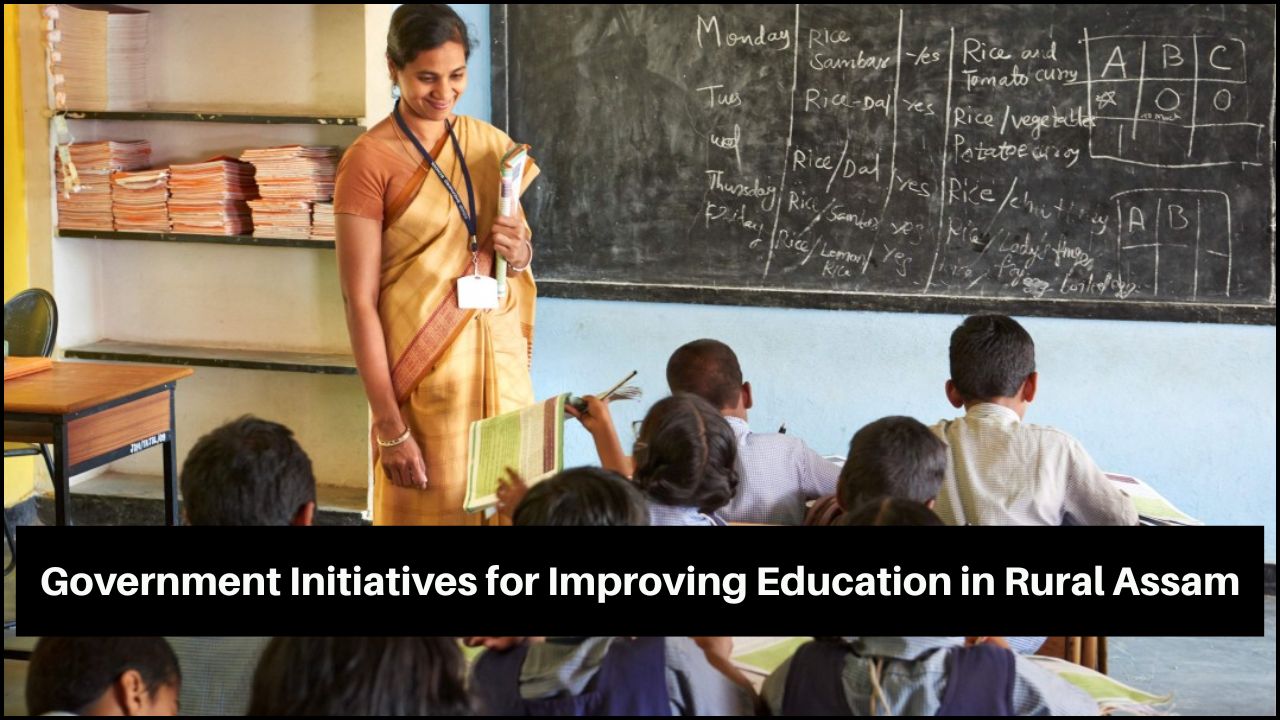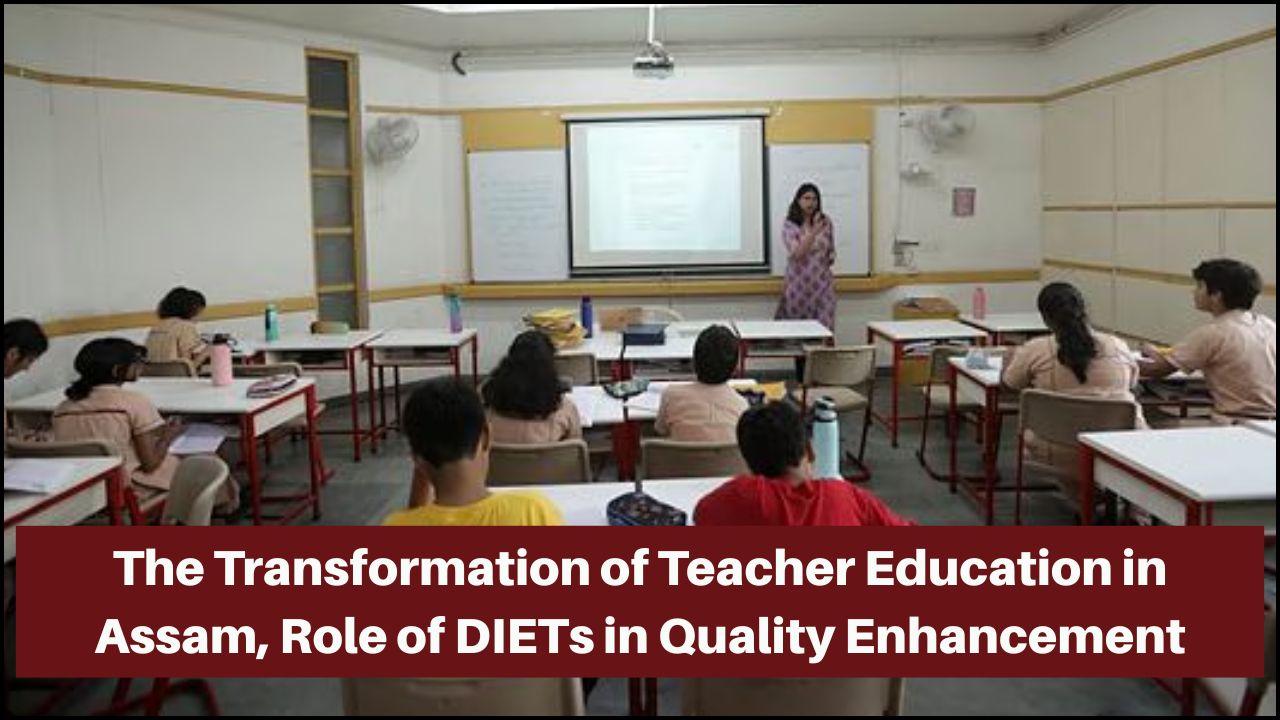
Elementary education forms the base of every child’s learning journey. In Assam, where many regions are rural and underdeveloped, the quality of education depends greatly on well-trained teachers. A Diploma in Elementary Education (D.El.Ed) plays a key role in preparing such teachers. This course equips future educators with practical teaching skills and subject knowledge required to improve the learning experience of young children. The government of Assam has made D.El.Ed is mandatory for elementary-level teachers, showing its commitment to better educational outcomes.
Table of Contents
What is D.El.Ed?
- Full Form: Diploma in Elementary Education
- Duration: 2 years
- Focus: Training teachers for classes I to VIII
- Regulated By: National Council for Teacher Education (NCTE)
Need for D.El.Ed in Assam
Assam faces many educational challenges, such as:
- High dropout rates in rural and tea garden areas
- Lack of trained teachers in elementary schools
- Poor student performance in basic reading and math
- Low motivation among teachers due to a lack of training
A strong D.El.Ed program directly addresses these issues.
Key Benefits of D.El.Ed for Assam’s Education System
- Teacher Professionalism: Trained teachers become more confident and committed to their roles.
- Improved Student Learning: Students benefit from activity-based learning methods taught in D.El.Ed.
- Language Support: Assam’s multilingual background is respected through inclusive teaching strategies.
- Better Classroom Management: Teachers learn child psychology and use it to manage classes better.
Skills Gained Through D.El. Ed
| Skill Area | Details |
|---|---|
| Pedagogical Knowledge | Use of child-centered and activity-based methods |
| Lesson Planning | Creating structured, age-appropriate lesson plans |
| Assessment Techniques | Use of continuous and comprehensive evaluation |
| Inclusive Education | Addressing needs of children with different learning abilities |
| Classroom Technology Use | Using digital tools and teaching aids effectively |
| Cultural Sensitivity | Respecting Assam’s diverse ethnic and linguistic background |
Institutes Offering D.El.Ed in Assam
| Institute Name | Location | Type |
|---|---|---|
| State Council of Educational Research and Training (SCERT) | Guwahati | Government |
| District Institutes of Education and Training (DIETs) | Various Districts | Government |
| Private Teacher Training Colleges | Across Assam | Private |
Why D.El.Ed is Crucial for Assam’s Development
- Bridge Learning Gaps: Trained teachers can help students who fall behind catch up with others.
- Promote Literacy and Numeracy: D.El.Ed focuses on foundational literacy, which improves long-term performance.
- Cultural Relevance: Local language and folk knowledge are integrated into the curriculum.
- Encouragement of Girl Education: Female D.El.Ed graduates often inspire young girls to attend school regularly.
- Community Engagement: Teachers learn to involve parents and local leaders in the educational process.
Government Support for D.El.Ed in Assam
| Program/Policy | Impact |
|---|---|
| Samagra Shiksha Abhiyan | Funds D.El.Ed training for in-service teachers |
| NCTE Guidelines | Ensure quality and uniformity in D.El.Ed curriculum |
| Distance D.El.Ed Mode for Working Teachers | Offers flexibility for untrained teachers in remote areas |
| Assam Government Recruitment Rules | Make D.El.Ed is mandatory for all elementary teacher posts |
Real-Life Impact of D.El.Ed Training
- Better Student Attendance: Engaging and trained teachers attract students to school every day.
- Higher Pass Rates: Students taught by D.El.Ed-certified teachers perform better in exams.
- Lower Teacher Absenteeism: Professionally trained teachers show more dedication and regularity.
- Improved Teaching in Bodo and Tribal Areas: D.El.Ed courses offer modules on bilingual and tribal language education.
Comparison: Trained vs Untrained Teachers
| Aspect | D.El.Ed-Trained Teacher | Untrained Teacher |
|---|---|---|
| Teaching Method | Child-centric, activity-based | Rote learning, lecture-based |
| Classroom Management | Based on child psychology and observation | Limited strategies |
| Assessment Approach | Continuous and comprehensive | Annual exams only |
| Professional Growth | Regular workshops and updates | Minimal development |
| Cultural Sensitivity | Included in training | Often overlooked |
Role of D.El.Ed in Rural and Tea Garden Areas
- Local Teacher Development: Youth from local communities are trained and posted in nearby schools.
- Context-Based Teaching: Real-life examples from local life are used in teaching, increasing understanding.
- Parental Involvement: Teachers encourage community support for education, especially in tribal belts.
Challenges in D.El.Ed Implementation
| Challenge | Explanation |
|---|---|
| Shortage of Training Institutes | Limited seats available in DIETs and private colleges |
| Distance Learning Limitations | Poor internet connectivity affects online modules |
| Language Barriers | Teaching material sometimes lacks regional language support |
| Low Awareness | Many aspirants in remote areas do not know about D.El.Ed benefits |
Steps Needed to Strengthen D.El.Ed in Assam
- Expand DIETs: More institutes are needed in remote districts.
- Update Curriculum: Regular updates should reflect modern teaching needs and technology.
- Promote Awareness: Government campaigns can inform rural youth about D.El.Ed benefits.
- Encourage Female Participation: Scholarships and safety measures should be provided for female trainees.
- Monitor Quality: Regular inspections and feedback systems must ensure training effectiveness.
Final Thoughts
A strong foundation in elementary education ensures a brighter future for Assam’s youth. D.El.Ed empowers teachers with skills, knowledge, and motivation to deliver high-quality education across the state. With increased focus on training and support from the government, Assam can raise its educational standards and provide equal opportunities to all children, regardless of background or location. Investing in D.El.Ed is not just a policy decision, but a long-term solution to many of the state’s educational challenges.





